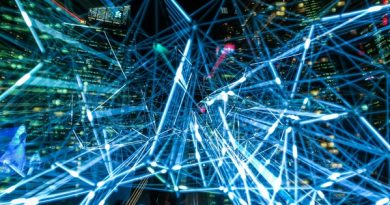How Quantum Computing Could Change Everything
Quantum computing is one of the most hyped—and most misunderstood—technologies of our time. But beneath the buzzwords and billion-dollar investments lies something real: a fundamental shift in how we solve problems.
Unlike traditional computers, which process bits as 0s or 1s, quantum computers use qubits, which can be 0 and 1 at the same time (thanks to quantum superposition). When linked via entanglement, qubits can process information in massively parallel ways.
That may sound abstract—but its consequences could be concrete, global, and transformative.
Let’s explore what quantum computing is, where it stands in 2025, and how it could change everything from finance to physics.
🧪 1. Revolutionizing Drug Discovery and Materials Science
Problem: Simulating molecules with classical computers is hard. Even simple proteins are too complex for today’s supercomputers to model precisely.
Quantum Fix:
Quantum computers can naturally simulate quantum systems, like atoms and molecules. That makes them ideal for:
- Designing new drugs faster
- Modeling battery chemistry
- Discovering new materials for solar panels, semiconductors, or superconductors
Real Example:
In 2025, companies like QSimulate and IBM are partnering with pharma giants to simulate drug-binding proteins—cutting R&D time dramatically.
🔐 2. Breaking (and Rebuilding) Encryption
Problem: Most internet encryption relies on math problems classical computers find hard—like factoring large prime numbers.
Quantum Fix:
Quantum algorithms (like Shor’s algorithm) could break RSA encryption in minutes—once quantum computers are powerful enough.
Fallout:
This could make current cybersecurity obsolete—and spark a shift to post-quantum cryptography.
2025 Reality Check:
Governments are already preparing. NIST has released quantum-safe encryption standards for public adoption.
🧠 3. Supercharging AI and Machine Learning
Quantum computing could boost AI by:
- Speeding up optimization problems (used in logistics, finance, and planning)
- Accelerating unsupervised learning, like clustering and recommendation systems
- Exploring massive solution spaces quickly (quantum annealing)
Example in 2025:
Startups like Xanadu and IonQ are testing hybrid quantum-classical models to enhance training for deep learning and reinforcement learning tasks.
📈 4. Optimizing Complex Systems
Quantum computers shine at combinatorial optimization—where you must weigh many variables and choices at once.
Applications:
- Traffic routing and air traffic control
- Portfolio optimization in finance
- Scheduling for factories and supply chains
Even a small quantum “advantage” could save millions in time and resources for logistics giants.
🌌 5. Unlocking New Physics
Some problems in quantum physics—like how time behaves near a black hole or how particles interact in high-energy conditions—are impossible to model classically.
Quantum computers could act as “test labs” for the universe, giving physicists insight into dark matter, quantum gravity, and early-universe conditions.
Yes, this is theoretical—but that’s exactly where breakthroughs often start.
🛠️ Where Quantum Tech Stands in 2025
| Company/Org | Focus Area | 2025 Milestone |
|---|---|---|
| IBM | Superconducting Qubits | >1,000-qubit chip (Condor) |
| Quantum Supremacy | Working on error correction for scaling | |
| IonQ | Trapped Ion Systems | Commercial cloud-based access |
| Rigetti | Quantum Cloud Services | Hybrid quantum-classical algorithms |
| D-Wave | Quantum Annealing | Industry pilots for logistics & finance |
Biggest Challenge:
Maintaining qubit stability and error correction. A useful, fault-tolerant quantum computer still requires millions of error-free qubits.
⚖️ What Could Go Wrong?
- Overhype: Quantum is powerful—but not a magical speed boost for everything
- Access Inequality: Like AI, a few big players may dominate, creating data and power monopolies
- Security Chaos: Quantum breakthroughs could destabilize online privacy if we’re unprepared
🧭 Final Thought: The Future Is Probabilistic
Quantum computing isn’t just faster—it’s fundamentally different. It forces us to think in probabilities, entanglement, and uncertainty—much like nature itself.
In 2025, it’s still early days. But the foundation is laid. And when quantum computers mature, they won’t just enhance what we do—they’ll unlock what we couldn’t even attempt.




